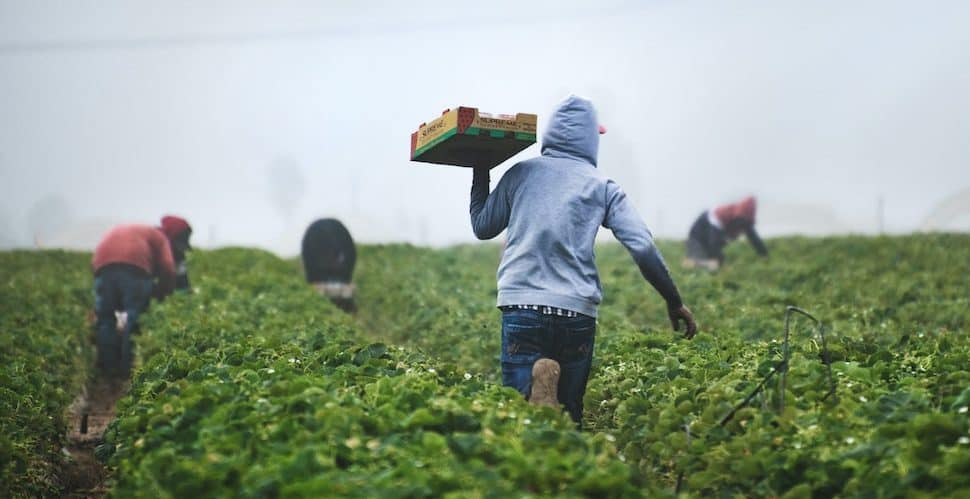A recent U.S. Supreme Court ruling on private property rights could now put migrant farmworkers at greater risk of labor trafficking.
In late June, the Supreme Court ruled 6-3 on the Cedar Point Nursery v Hassid case, deciding to uphold private property rights over organizing rights, thereby prohibiting California union organizers from fields and bunkhouses. In doing so, the court struck down a California rule that allowed union organizers to meet with farmworkers at their place of work.
In barring union organizers from accessing farms where they can speak with workers about their rights, many anti-trafficking and labor rights advocates fear that farmworkers will become increasingly isolated.
United Farmworkers of America told the justices that farmworkers are increasingly indigenous workers from Mexico who, in many cases do not speak, read, or write English or Spanish, and may be unaware of their rights and lack cell phones. Meeting with union organizers in-person was the most effective way to communicate with them.
“A lot of these workers are living in labor camps owned by the employer, are transported to and from their worksites, and these folks are isolated,” said Elizabeth Strater, United Farm Workers Director of Strategic Campaigns. “They never leave their employers’ property. In some instances, they are isolated by design.”
Cal Matters reports:
Labor trafficking is a form of human trafficking. It involves forcing or coercing someone to provide labor or services, such as picking produce in the fields or washing dishes in a restaurant.
California’s Department of Justice estimates that up to 17,500 trafficking victims are brought into the country annually. Men, women, entire families, and children as young as 5 years old have been found to be victims of labor trafficking in agriculture, working as migrant or seasonal farmworkers harvesting and packing crops or raising animals, according to the National Human Trafficking Hotline.
Given its enormous agricultural sector, Monterey County Deputy District Attorney Greg Peterson said the county is likely a leading county for labor trafficking. However, experts say it is significantly underreported and under-enforced in comparison to sex trafficking.
Derek Marsh, assistant director of Vanguard University’s Global Center for Women and Justice, explained that at least 80% of labor trafficking victims have come to the U.S. legally.
He says it is important for farmworkers to have regular contact with people, such as union organizers, who can identify signs of trafficking. “In my mind, the more eyes, the merrier,” he said. “It makes sure operations are transparent and they have informed employees.”
Join the Freedom United campaign urging California to ensure all temporary workers are free from exploitation.





Freedom United is interested in hearing from our community and welcomes relevant, informed comments, advice, and insights that advance the conversation around our campaigns and advocacy. We value inclusivity and respect within our community. To be approved, your comments should be civil.